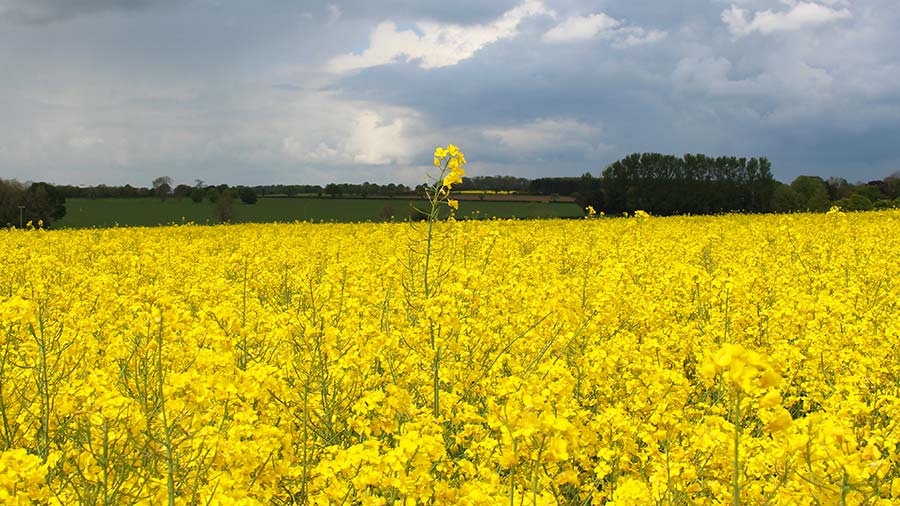Oilseeds near £350/t as large EU crop weighs on market
 © MAG/Richard Allison
© MAG/Richard Allison The outlook for UK oilseeds markets remains bearish in the short term with a large crop expected in Europe and mixed global demand.
Total oilseeds production in the EU-27 is projected to be 33.7m tonnes by the EU Commission for this harvest – up 13% on the five-year average.
European trade association Coceral’s latest estimate puts the combined EU-27 and UK rapeseed crop at 21m tonnes, in line with 2022 volumes.
See also: What’s the outlook for UK cereals and oilseeds markets?
The trade body said plantings were up slightly on the year, while yields were expected to drop slightly.
Coceral analysts said: “If the current dryness in the northern half of the EU continues into July, a further cut in the production forecast seems very likely.”
The US Department of Agriculture’s latest World Agricultural Supply and Demand Estimates report suggests this increase in output has been partially offset by lower production in Australia.
The Australian Bureau of Agricultural and Resource Economics and Sciences cut its 2023-24 canola production forecast by 41% due to El Nino concerns, according to grain trader ADM Agriculture.
Ex-farm oilseed rape spot prices collected by Farmers Weekly rose by £10/t on the week to average £346/t on 14 June.
In the UK, Brent crude oil values are also playing a part in some of the price recovery for oilseeds, with prices at US$74.85/barrel (£59.12) on 14 June.
Global markets have climbed back from the lows seen in mid-May, with Paris rapeseed futures at €448.5/t (£383/t) on 13 June for the August contract, up €32.50 (£28/t) on the month.
Chicago futures also made gains in recent weeks, but remain low compared with the start of the year, averaging $486/t (£384/t) on 13 June.
Price volatility is expected to remain, at least in the short term, due to the conflict in the Black Sea region.
The dam explosion in Ukraine last week is still causing widespread issues, especially for irrigation, with the Ukrainian agricultural ministry reporting that 1.5m hectares of land would be affected.
Mykola Solskyi, Ukraine’s minister of agrarian policy and food, said the consequences of irrigation termination were very serious and it would take three to seven years to restore them.
